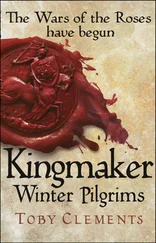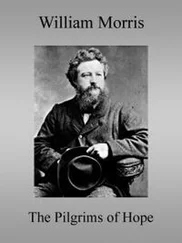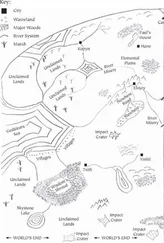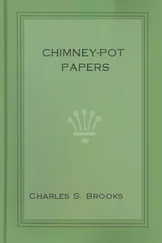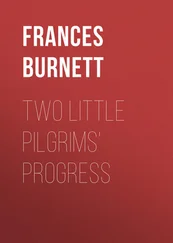Charles Brooks - Hints to Pilgrims
Здесь есть возможность читать онлайн «Charles Brooks - Hints to Pilgrims» — ознакомительный отрывок электронной книги совершенно бесплатно, а после прочтения отрывка купить полную версию. В некоторых случаях можно слушать аудио, скачать через торрент в формате fb2 и присутствует краткое содержание. Жанр: foreign_antique, foreign_prose, на английском языке. Описание произведения, (предисловие) а так же отзывы посетителей доступны на портале библиотеки ЛибКат.
- Название:Hints to Pilgrims
- Автор:
- Жанр:
- Год:неизвестен
- ISBN:нет данных
- Рейтинг книги:3 / 5. Голосов: 1
-
Избранное:Добавить в избранное
- Отзывы:
-
Ваша оценка:
- 60
- 1
- 2
- 3
- 4
- 5
Hints to Pilgrims: краткое содержание, описание и аннотация
Предлагаем к чтению аннотацию, описание, краткое содержание или предисловие (зависит от того, что написал сам автор книги «Hints to Pilgrims»). Если вы не нашли необходимую информацию о книге — напишите в комментариях, мы постараемся отыскать её.
Hints to Pilgrims — читать онлайн ознакомительный отрывок
Ниже представлен текст книги, разбитый по страницам. Система сохранения места последней прочитанной страницы, позволяет с удобством читать онлайн бесплатно книгу «Hints to Pilgrims», без необходимости каждый раз заново искать на чём Вы остановились. Поставьте закладку, и сможете в любой момент перейти на страницу, на которой закончили чтение.
Интервал:
Закладка:
Nor in the general muster of our sights must I forget the magic view from across the river, in the end of a winter afternoon, when the lower city is still lighted. The clustered windows shine as if a larger constellation of stars had met in thick convention. But it is to the eye of one who travels in the evening mist from Staten Island that towers of finest gossamer arise. They are built to furnish a fantastic dream. The architect of the summer clouds has tried here his finer hand.
It was only lately when our ferry-boat came around the point of Governor's Island, that I noticed how sharply the chasm of Broadway cuts the city. It was the twilight of a winter's day. A rack of sullen clouds lay across the sky as if they met for mischief, and the water was black with wind. In the threatening obscurity the whole island seemed a mightier House of Usher, intricate of many buildings, cleft by Broadway in its middle, and ready to fall prostrate into the dark waters of the tarn. But until the gathering tempest rises and an evil moon peers through the crevice, as in the story, we must judge the city to be safe.
Northward are nests of streets, thick with children. One might think that the old woman who lived in a shoe dwelt hard by, with all of her married sisters roundabout. Children scurry under foot, oblivious of contact. They shoot their marbles between our feet, and we are the moving hazard of their score. They chalk their games upon the pavement. Baseball is played, long and thin, between the gutters. Peddlers' carts line the curb – carrots, shoes and small hardware – and there is shrill chaffering all the day. Here are dim restaurants, with truant smells for their advertisement. In one of these I was served unleavened bread. Folk from Damascus would have felt at home, and yet the shadow of the Woolworth Tower was across the roof. The loaf was rolled thin, like a chair-pad that a monstrous fat man habitually sits upon. Indeed, I looked sharply at my ample waiter on the chance that it was he who had taken his ease upon my bread. If Kalamazoo would tire for a night of the Beauty Chorus and the Wrigley triplets, and would walk these streets of foreign population, how amazing would be its letters home!
Our Greenwich Village, also, has its sights. Time was when we were really a village beyond the city. Even more remotely there were farms upon us and comfortable burghers jogged up from town to find the peace of country. There was once a swamp where Washington Square now is, and, quite lately, masons in demolishing a foundation struck into a conduit of running water that still drains our pleasant park. When Broadway was a muddy post-road, stretching for a weary week to Albany, ducks quacked about us and were shot with blunderbuss. Yes, and they were doubtless roasted, with apple-sauce upon the side. And then a hundred years went by, and the breathless city jumped to the north and left us a village in its midst.
It really is a village. The grocer gives you credit without question. Further north, where fashion shops, he would inspect you up and down with a cruel eye and ask a reference. He would linger on any patch or shiny spot to trip your credit. But here he wets his pencil and writes down the order without question. His friendly cat rubs against your bundles on the counter. The shoemaker inquires how your tapped soles are wearing. The bootblack, without lifting his eyes, knows you by the knots in your shoe-strings. I fear he beats his wife, for he has a great red nose which even prohibition has failed to cool. The little woman at the corner offers you the Times before you speak. The cigar man tosses you a package of Camels as you enter. Even the four-corners beyond Berea – unknown, remote, quite off the general travel – could hardly be more familiar with the preference of its oldest citizen. We need only a pump, and a pig and chickens in the street.
Our gossip is smaller than is found in cities. If we had yards and gardens we would talk across the fence on Monday like any village, with clothes-pins in our mouths, and pass our ailments down the street.
But we are crowded close, wall to wall. I see my neighbor cooking across the street. Each morning she jolts her dust-mop out of the window. I see shadows on a curtain as a family sits before the fire. A novelist is down below. By the frenzy of his fingers on the typewriter it must be a tale of great excitement. He never pauses or looks at the ceiling for a plot. At night he reads his pages to his patient wife, when they together have cleared away the dishes. In another window a girl lies abed each morning. Exactly at 7.45, after a few minutes of sleepy stretching, I see her slim legs come from the coverlet. Once she caught my eye. She stuck out her tongue. Your stockings, my dear, hang across the radiator.
We have odd characters, too, known to everybody, just as small towns have, who, in country circumstance, would whittle on the bench outside the village store. The father of a famous poet, but himself unknown except hereabouts, has his chair in the corner of a certain restaurant, and he offers wisdom and reminiscence to a coterie. He is our Johnson at the Mitre. Old M – , who lives in the Alley in what was once a hayloft – now a studio, – is known from Fourth to Twelfth Street for his Indian curry and his knowledge of the older poets. It is his pleasant custom to drop in on his friends from time to time and cook their dinner. He tosses you an ancient sonnet as he stirs the pot, or he beats time with his iron spoon to a melody of the Pathétique. He knows Shakespeare to a comma, and discourses so agreeably that the Madison Square clock fairly races up to midnight. Every morning, it is said – but I doubt the truth of this, for a gossiping lady told me – every morning until the general drouth set in, he issued from the Alley for a toddy to sustain his seventy years. Sometimes, she says, old M – went without tie or collar on these quick excursions, yet with the manners of the Empire and a sweeping bow, if he met any lady of his acquaintance.
A famous lecturer in a fur collar sweeps by me often, with his eyes on the poetic stars. As he takes the air this sunny morning he thinks of new paradoxes to startle the ladies at his matinée. How they love to be shocked by his wicked speech! He is such a daring, handsome fellow – so like a god of ancient Greece! And of course most of us know T – , who gives a yearly dinner at an Assyrian restaurant – sixty cents a plate, with a near-beer extra from a saloon across the way. Any guest may bring a friend, but he must give ample warning in order that the table may be stretched.
The chief poet of our village wears a corduroy suit and goes without his hat, even in winter. If a comedy of his happens to be playing at a little theatre, he himself rings a bell in his favorite restaurant and makes the announcement in true Elizabethan fashion. "Know ye, one and all, there is a conceited comedy this night – " His hair is always tousled. But, as its confusion continues from March into the quieter months, the disarrangement springs not so much from the outer tempest as from the poetic storms inside.
Then we have a kind of Peter Pan grown to shiny middle life, who makes ukuleles for a living. On any night of special celebration he is prevailed upon to mount a table and sing one of his own songs to this accompaniment. These songs tell what a merry, wicked crew we are. He sings of the artists' balls that ape the Bohemia of Paris, of our genius, our unrestraint, our scorn of all convention. What is morality but a suit to be discarded when it is old? What is life, he sings, but a mad jester with tinkling bells? Youth is brief, and when dead we're buried deep. So let's romp and drink and kiss. It is a pagan song that has lasted through the centuries. If it happens that any folk are down from the uptown hotels, Peter Pan consents to sell a ukulele between his encores. Here, my dear pilgrims, is an entertainment to be squeezed between Ziegfeld's and the Winter Garden.
Читать дальшеИнтервал:
Закладка:
Похожие книги на «Hints to Pilgrims»
Представляем Вашему вниманию похожие книги на «Hints to Pilgrims» списком для выбора. Мы отобрали схожую по названию и смыслу литературу в надежде предоставить читателям больше вариантов отыскать новые, интересные, ещё непрочитанные произведения.
Обсуждение, отзывы о книге «Hints to Pilgrims» и просто собственные мнения читателей. Оставьте ваши комментарии, напишите, что Вы думаете о произведении, его смысле или главных героях. Укажите что конкретно понравилось, а что нет, и почему Вы так считаете.




